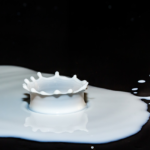Curious about the safety of consuming sodium chloride? Well, you’ll be pleased to know that this common seasoning, also known as table salt, is actually safe to eat.
It plays a vital role in maintaining a healthy electrolyte balance in your body and helps regulate blood pressure.
In this article, we’ll delve into the composition of sodium chloride, its digestion and absorption, and the safety measures and recommendations for its consumption.
So, let’s explore why sodium chloride is perfectly safe for you to enjoy!
Key Takeaways
- Sodium chloride, or table salt, is safe to eat because it is composed of sodium and chloride ions.
- Sodium chloride helps maintain electrolyte balance in the body, regulating fluid balance, nerve function, and muscle contraction.
- The digestion process breaks down sodium chloride into sodium and chloride ions, which are absorbed into the bloodstream and play crucial roles in bodily functions.
- While excessive intake of sodium chloride can contribute to hypertension, consuming it in moderation is recommended for proper blood pressure regulation.
The Composition of Sodium Chloride
You can find sodium chloride in many everyday items, such as table salt and ocean water.
Sodium chloride, commonly known as salt, is composed of two elements: sodium and chlorine.
It’s a white, crystalline solid with a chemical formula NaCl.
The chemical properties of sodium chloride make it highly soluble in water, which is why it’s commonly found in large amounts in the Earth’s oceans.
When dissolved in water, sodium chloride dissociates into sodium ions (Na+) and chloride ions (Cl-). These ions play important roles in various biological processes in the human body.
Sodium ions help regulate fluid balance, nerve function, and muscle contraction, while chloride ions are involved in maintaining proper pH levels and aiding digestion.
However, it’s important to note that excessive consumption of sodium chloride can have negative health effects, such as high blood pressure.
Therefore, it’s recommended to consume salt in moderation to enjoy its health benefits without adverse consequences.
Sodium Chloride and Our Body’s Electrolyte Balance
The sodium chloride in our body plays a crucial role in maintaining our electrolyte balance. Electrolytes are minerals that carry an electric charge and are essential for various bodily functions, including muscle contraction. Sodium chloride, or table salt, contains sodium and chloride ions that help transmit electrical impulses along nerve cells and coordinate muscle contractions. When you consume sodium chloride, it dissolves in water in your body and breaks up into sodium and chloride ions. These ions are then distributed throughout your body and help regulate the balance of fluids inside and outside cells. In addition to its role in our body, sodium chloride is commonly used in food preservation to enhance taste and inhibit the growth of bacteria.
| Electrolyte | Function |
|---|---|
| Sodium | Regulates fluid balance |
| Chloride | Helps with digestion |
| Potassium | Aids in muscle function |
The Digestion and Absorption of Sodium Chloride
When sodium chloride enters your digestive system, it’s broken down and absorbed into your bloodstream.
The digestion process begins in your mouth, where the salt dissolves in saliva. As you swallow, the sodium chloride travels down your esophagus and into your stomach.
There, the hydrochloric acid breaks down the salt into its individual ions, sodium and chloride. These ions are then absorbed in the small intestine, where they enter your bloodstream and are transported to cells throughout your body.
Sodium and chloride play important roles in maintaining fluid balance, nerve function, and muscle contraction. They also help regulate blood pressure and pH levels.
Therefore, the digestion and absorption of sodium chloride are essential for your overall health and well-being.
Sodium Chloride and Blood Pressure Regulation
One way that sodium chloride helps regulate blood pressure is by maintaining the balance of fluids in your body.
Here are three ways in which sodium chloride plays a role in blood pressure regulation:
-
Sodium chloride and hypertension: High blood pressure, or hypertension, is a common health issue that can lead to serious complications. Excessive intake of sodium chloride can contribute to hypertension by increasing the volume of blood in your body and putting extra strain on your blood vessels.
-
Sodium chloride and kidney function: Your kidneys play a crucial role in regulating blood pressure. Sodium chloride affects kidney function by influencing the amount of fluid and electrolytes that are excreted in urine. By controlling the amount of sodium chloride in your body, your kidneys help maintain a healthy blood pressure.
-
Balancing sodium chloride intake: While sodium chloride is necessary for your body’s functions, excessive consumption can lead to health problems. It’s important to consume sodium chloride in moderation and be mindful of your overall salt intake to support proper blood pressure regulation.
Safety Measures and Recommendations for Sodium Chloride Consumption
To ensure your safety, it is important to follow certain guidelines and recommendations when consuming sodium chloride. While sodium chloride is generally considered safe for consumption, it is essential to be mindful of potential side effects and to adhere to the recommended daily intake. Excessive intake of sodium chloride can lead to health issues such as high blood pressure, fluid retention, and kidney problems. It is recommended to consume no more than 2,300 milligrams (mg) of sodium per day, which is equivalent to one teaspoon of salt. However, individuals with certain health conditions, such as hypertension or kidney disease, should aim for an even lower intake, typically around 1,500 mg per day. By monitoring your sodium chloride intake and following these guidelines, you can enjoy it safely as part of a balanced diet.
| Potential Side Effects | Recommended Daily Intake |
|---|---|
| High blood pressure | 2,300 mg of sodium |
| Fluid retention | (1 teaspoon of salt) |
| Kidney problems | per day |
Frequently Asked Questions
What Are Some Common Sources of Sodium Chloride in Our Daily Diets?
Common sources of sodium chloride in your daily diet are processed foods, such as canned soups and snacks, as well as condiments like soy sauce. Consuming excessive amounts can lead to health effects like high blood pressure.
Can Consuming Too Much Sodium Chloride Have Negative Health Effects?
Consuming too much sodium chloride can have negative health effects. It can increase your blood pressure, putting strain on your heart and increasing your risk of heart disease. Be mindful of your sodium intake.
Are There Any Potential Interactions or Side Effects of Consuming Sodium Chloride With Certain Medications or Medical Conditions?
When consuming sodium chloride, it’s important to consider potential drug interactions and its impact on your blood pressure. Certain medications and medical conditions may be affected, so consult your doctor for personalized advice.
Is There a Recommended Daily Intake of Sodium Chloride for Different Age Groups or Populations?
You should know that there is a recommended daily intake of sodium chloride for different age groups or populations. It is important to understand the appropriate levels to maintain a healthy lifestyle.
Are There Any Alternative Salts or Salt Substitutes That Can Be Used as a Healthier Alternative to Sodium Chloride?
Salt substitutes can be used as a healthier alternative to sodium chloride. They can help reduce the health risks associated with excessive sodium intake. It is important to consult with a healthcare professional before making any dietary changes.
Conclusion
So, in conclusion, sodium chloride is safe to eat because it’s a vital component of our body’s electrolyte balance and plays a crucial role in regulating blood pressure.
It’s easily digested and absorbed by our bodies, ensuring that we can maintain a healthy sodium level.
However, it’s important to consume sodium chloride in moderation and follow safety measures and recommendations to prevent any potential health risks.
As they say, a pinch of salt is all it takes to enhance the flavor, but too much can spoil the dish.




